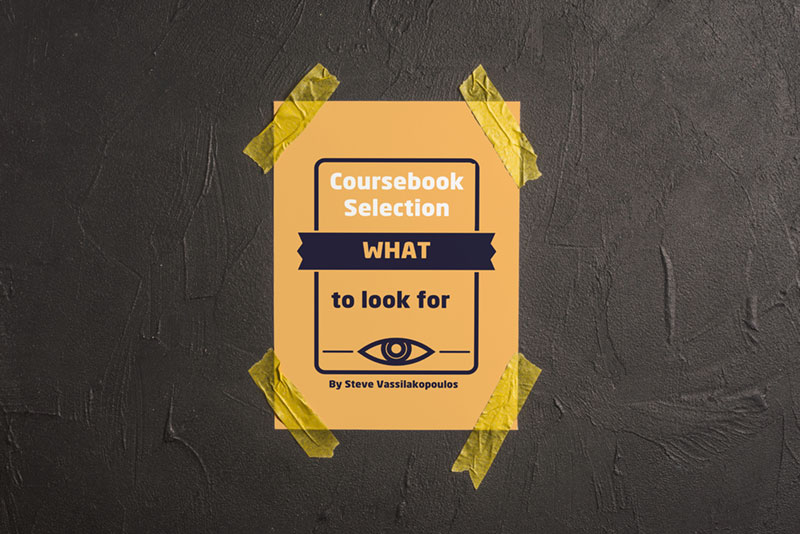There are a number of factors to take into consideration when deciding on a coursebook, the first one being whether one is necessary or not. This, in turn, is dependent on the students’ needs. For example, if a student needs a certain IELTS score by a certain date, using a coursebook may mean that a large part of it may remain unused. However, if the course is to last the length of an academic year, then using a coursebook is a good solution.
Perhaps the most basic aspect to consider when choosing a coursebook is to what extent the teaching materials provided in it meets the aims and objectives of the teaching programme that you have for your students. This should guide your decision regarding coursebook selection not the other way around that is the aim should not be to finish the coursebook and base the teaching programme on that but to use the materials contained in the coursebook to best fulfill the aims you have previously determined.
Another crucial element to put into the equation is whether it meets your students’ needs and capabilities. We must always remember that only small units of new language should be introduced to learners and these should be related to what has previously been taught. Bearing this in mind, we should see what kind of syllabus the coursebook is using. For instance, if it is a functional or structural one, a combination of both and to what degree they are balanced and ultimately how well they satisfy the students’ needs.
Many teachers and EFL schools have chosen to dispense of coursebooks altogether and use skills books and practice test books to fulfil their needs; however doing so usually involves losing out on a number of key areas involved in learning and using a foreign language, the first and foremost one being the smooth and effective integration of skills. Indeed, the seamless integration of skills is the hallmark of a good EFL coursebook. Integration of skills mirrors the way language is used in the real world. We often discuss what we have seen, heard or read and write about what we have seen, heard or read. A coursebook which is well integrated also prevents lessons from becoming boring and repetitive facilitating a variety of evenly paced activities to take place.
If you have ultimately decided to employ a coursebook, another important thing to look out for is how interesting and relevant the content or themes are as well as their educational value regarding your students’ general knowledge of the world. When something interesting and useful is taught, it is much easier for this knowledge to be retained including the language used to transit this knowledge. Also, when your students’ knowledge of the outside world expands, the more they will have to speak and write about. It goes without saying, that the activities included in such a coursebook should be well-balanced requiring students to be actively involved in the lesson and not simply absorbing the information, memorizing it and regurgitating it when asked for by the teacher.
Now, to balance out all the above, we need to take into account the learners’ needs as previously mentioned as well as the necessary structures and vocabulary needed to serve the functions required. When you are able to find a coursebook that covers all this to satisfactory level, then you have found a suitable coursebook.
